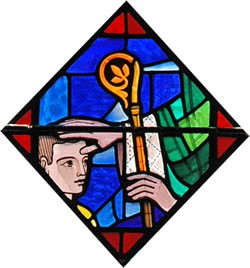The seven sacraments touch all the stages and all the important moments of Christian life: they give birth and increase, healing and mission to the Christian’s life of faith. There is thus a certain resemblance between the stages of natural life and the stages of the spiritual life.
(Catechism of the Catholic Church 1210)
Why are the Sacraments important?
Sacraments are central for Catholics. They help us meet the incarnate Jesus, who comes to us through cleansing water and invigorating oil to welcome us, life-giving bread and wine that become Christ’s Body and Blood, a hand outstretched in forgiveness, vows lovingly exchanged in marriage, a hand designating someone for ordained service and oil to strengthen the sick and comfort the dying.
The Latin word sacramentum means “a sign of the sacred.”
The seven sacraments are ceremonies that point to what is sacred, significant and important for Christians. They are special occasions for experiencing God’s saving presence. That is what theologians mean when they say that sacraments are at the same time signs and instruments of God’s grace.
According to the Catechism of the Catholic Church (1127),
“Celebrated worthily in faith, the sacraments confer the grace that they signify. They are efficacious because in them Christ himself is at work; it is he who baptises, he who acts in his sacraments in order to communicate the grace that each sacrament signifies”
What are the Sacraments?
These seven sacraments are:
- The Sacrament of Baptism
- The Sacrament of Confirmation
- The Sacrament of Eucharist
- The Sacrament of Reconciliation (Confession)
- The Sacrament of Marriage
- The Sacrament of Holy Orders
- The Sacrament of Anointing of the Sick
Follow the links for each of them to learn more.
Adult Formation: throughout the year courses and days of recollection are held for adults of our parish to encourage maturation in the faith. [usually Thursday evenings & some Saturday mornings]
Interested in becoming a Catholic? Find out more about RCIA here
Baptism
Through Baptism we are freed from sin and reborn as sons of God; we become members of Christ, are incorporated into the Church and made sharers in her mission: “Baptism is the sacrament of regeneration through water in the word.” (Catechism of the Catholic Church 1213)
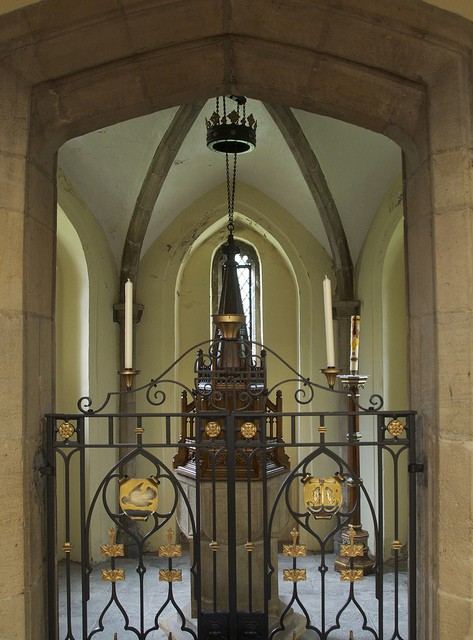
Baptising your child
For Catholics, the Sacrament of Baptism is the first step in a lifelong journey of commitment and discipleship. Through baptism we are freed from the darkness of our world, we become sons and daughters of God and are embraced into the family of the Church.
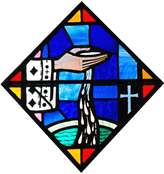
Baptism removes the guilt and effects of Original Sin and incorporates the baptised into the Church, the Mystical Body of Christ on earth. Catholic families are encouraged to baptise their children soon after birth, however sometimes people are baptised later, or even as adults.
Infant Baptism
Initial inquiries regarding your child’s baptism should be made to the Parish Office.
Baptism for School-aged Children.
Our parish will has a special programme in place for older school-aged children. Please speak to one of the parish team if you’d like to know more.
Preparation for Holy Baptism [one Friday evening each month]
A group of parishioners regularly support and help those who are preparing for baptism.
Confirmation
By the sacrament of Confirmation, [the baptized] are more perfectly bound to the Church and are enriched with a special strength of the Holy Spirit. (Catechism of the Catholic Church 1285)
The Sacrament of Confirmation is the second of the three sacraments of initiation. Confirmation perfects our baptism and brings us the graces of the Holy Spirit that were granted to the Apostles on Pentecost Sunday.
If Baptism is the sacrament of re-birth to a new and supernatural life, Confirmation is the sacrament of maturity and coming of age. Confirmation is a sacrament of empowerment.
It gives the strength to follow Jesus and to become involved in the mission which Jesus left to the Church. This Sacrament impresses an indelible character.
“I have baptised you with water; he will baptise you with the Holy Spirit.” Mark 13:11
Young Adult’s Confirmation
Young adults are eligible to receive Confirmation if they have been baptised (or received) into the Catholic Church and are in School year 10 or above.
Adult Confirmation
For those who are already baptized Catholic but have not yet been confirmed. To enrol for adult confirmation, please contact one of the parish team.
For those who are not yet baptised or received into the Catholic Church there is the Rite of Christian Initiation of Adults (R.C.I.A.) or a similar process.
Confirmation [Mondays 8.00-9.00pm]
Preparation for this Sacrament takes place for young adults in Year 10 and above. Please contact us in November for details of registration for the following year.
Eucharist
The Eucharist is “the source and summit of the Christian life. […] For in the blessed Eucharist is contained the whole spiritual good of the Church, namely Christ himself, our Pasch.” (Catechism of the Catholic Church 1324)
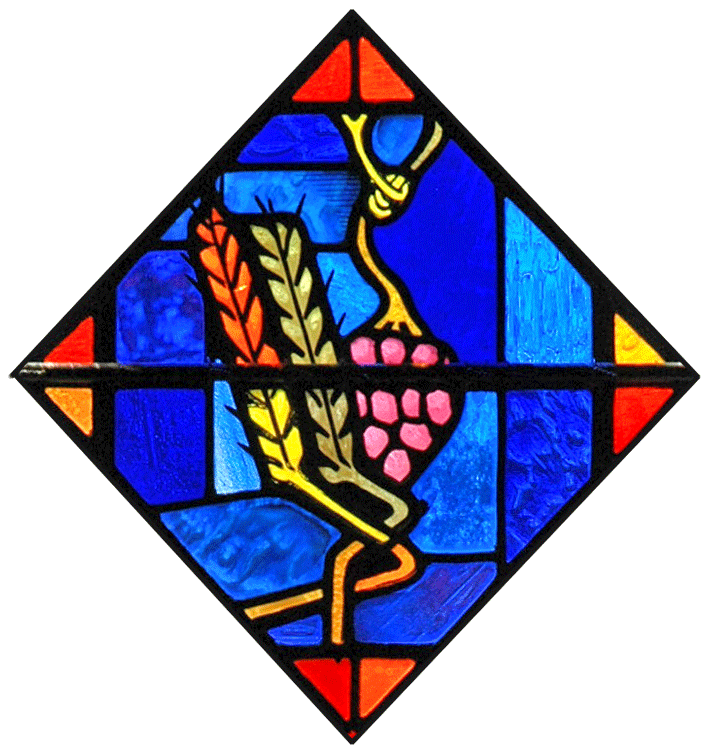
The third of the three sacraments of initiation, the Sacrament of Holy Communion, is the reception of Christ’s Body and Blood.
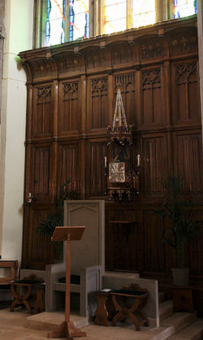
This sacrament is the source of great graces that sanctify us and help us grow in the likeness of Jesus Christ. Catholics believe the Mass is both a sacrifice and a meal.
The Eucharistic meal can only be prepared in the sacrifice of the Mass.
The Eucharist
When we receive Communion, we become one with him, and we become one with each other. As a community, we become ‘the body of Christ‘.
The Sunday Mass is the highpoint of our worship as a parish. Communion is taken to the sick and housebound after each Sunday Mass by Ministers of Communion.
Children usually make their First Holy Communion during school year 3. They prepare for this through the parish.
When an adult is baptised, he or she normally makes their First Communion in the same ceremony as their baptism. Their preparation for this is usually through the Rite of Christian Initiation of Adults (R.C.I.A.) or a similar process.
First Holy Communion/First Reconciliation [Tuesdays 7.30-8.30pm]
A group of catechists prepares children for the Sacrament of Reconciliation & First Holy Communion. Children should make this preparation in School Year 3. Enrolment is in September.
Friends of Jesus (pre-1st Communion) [Fridays 5.30-6.30pm]
Catechesis is arranged when required for children not attending a Catholic School to help them prepare for their First Holy Communion.
For all other inquiries regarding Eucharist (Holy Communion), please contact a member of the parish team.
Reconciliation
After saying this he breathed on them and said: “Receive the Holy Spirit. For those whose sins you forgive, they are forgiven, for those whose sins you retrain, they are retained.”
John 20:22
Also known as the Sacrament of Reconciliation, Confession is a sign and experience of God’s unconditional forgiveness.
Reconciliation is a sacrament which can be celebrated repeatedly throughout one’s life, and indeed Catholics are encouraged to receive this sacrament frequently. The Church suggests regularly confessing our sins in the Sacrament of Reconciliation, at least once a year during the Easter Season.
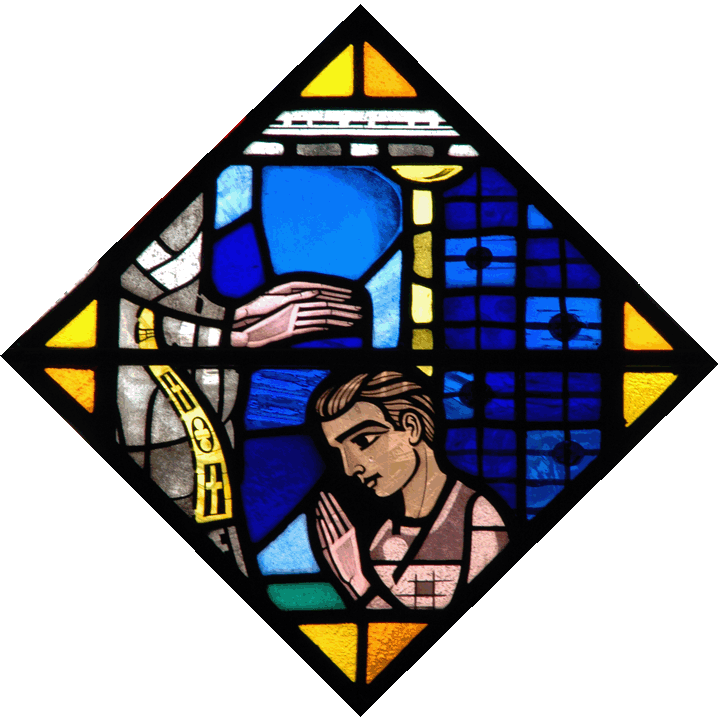
The Blessings in Frequent Confession
There are many blessings in frequent confession (cf. Catechism of the Catholic Church 1425-1498). Among such blessings are the following:
- It restores divine life to those who have lost it through mortal sin;
- It increases grace and one’s capacity for grace and helps one to grow in Christian maturity;
- It brings order and peace into one’s life by causing one to pause at regular intervals and ask oneself the all-important question: Where am I in my relationship with God?
- It improves personal relations with others by making one aware of attitudes and actions that cause pain to others;
- It motivates one to practice the basic Christian virtues: faith, hope, charity, humility, self-denial, repentance, detachment from the pagan ways of modern life.
First Confession
In our parish Catholic children usually make their First Reconciliation at School year 3. They prepare for this through the Children’s Sacramental Programme which includes preparation for holy Communion.
If you are unsure how to go to Confession …
Sometimes, people hesitate to go to confession because they have forgotten how to do so. This guide should help you.
Marriage
The matrimonial covenant, by which a man and a woman establish between themselves a partnership of the whole of life, is by its nature ordered toward the good of the spouses and the procreation and education of offspring. (Catechism of the Catholic Church 1601)
For Catholics, the Sacrament of Marriage, or Holy Matrimony, is a public sign that one gives oneself totally to another person.
It is also a public statement about God: the loving union of husband and wife speaks of family values and also God’s values. As such, preparing for marriage often means some deep reflection on how God fits into your life, your future and of course, your marriage.
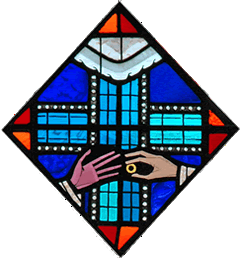
Most sacraments are celebrated by a priest or bishop, but in marriage the couple themselves mutually confer upon each other the sacrament of Matrimony through their consent:
‘I take you to be my husband/wife,’
‘I do’.
The priest receives this consent and gives the blessing of the Church. The giving of consent results in the marriage bond, which is permanent and irrevocable.
There are two purposes of marriage: the mutual welfare and support of the couple, and the procreation and upbringing of children. To be a valid marriage, the couple cannot deliberately exclude either of these purposes.
Wedding Preparation

If you plan to get married:
- Do not make any bookings until you have spoken to a priest.
- It is your local church that normally completes the paperwork, even if you intend to get married elsewhere.
- If one of you has been married before – in either a civil or religious ceremony -, this will need to be investigated before you can proceed; this can take time.
- You need to comply with the civil requirements for marriage: the wedding cannot take place without the necessary certificate/licence from the local authority.
Notice for Marriage
The Catholic Church requires a minimum of six months’ notice to arrange and prepare a couple for marriage.
Setting a date for your wedding ceremony is always done in consultation with the priest.
Before you arrange your marriage please contact the Parish Office to receive a Wedding Pack.
Holy Orders
Holy Orders is the sacrament through which the mission entrusted by Christ to his apostles continues to be exercised in the Church until the end of time: thus it is the sacrament of apostolic ministry. (Catechism of the Catholic Church 1536)
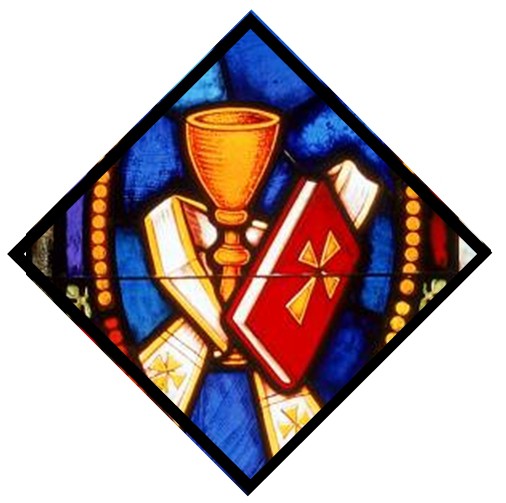
The three levels of the sacrament are: episcopate, priesthood, and diaconate.
In the Sacrament of Holy Orders, or Ordination, the priest being ordained vows to lead other Catholics by bringing them the sacraments (especially the Eucharist), by proclaiming the Gospel, and by providing other means to holiness.
Wonder if you have a call for the Sacrament of Holy Orders?
If you think you may be called to the sacrament of Holy Orders, or if you are simply interested in Holy orders, please contact one of your priests and they will be happy to talk further with you about it.
You may find this link to the Diocese of Westminster’s Vocation site helpful: http://rcdow.org.uk/vocations/
Anointing of the Sick
Is any man sick among you? Let him bring in the “priests” of the church, and let them pray over him.
James 5:14
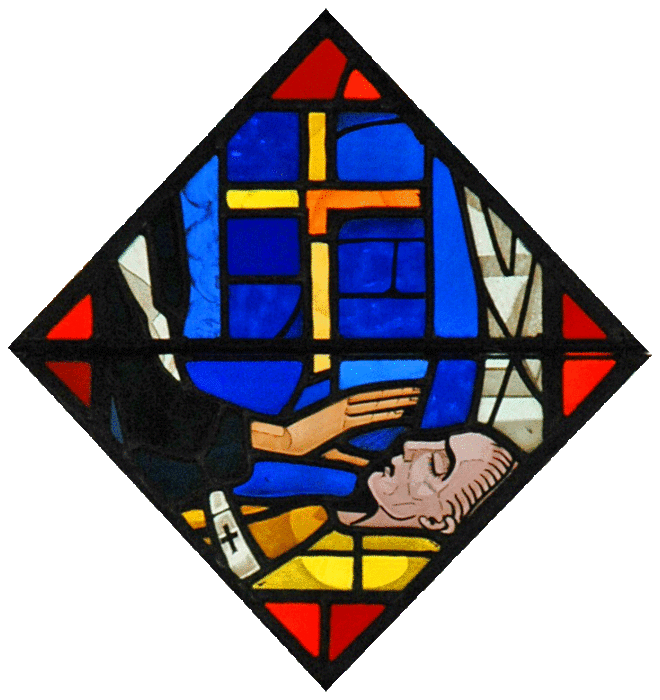
When a Catholic is very sick, the Church anoints the person with oil in a special ritual of healing called Anointing of the Sick.
Traditionally referred to as Extreme Unction or Last Rites, the Sacrament of the Anointing of the Sick is administered both to the dying and to those who are gravely ill or are about to undergo a serious operation, for the recovery of their health and for spiritual strength. It is a ritual of healing appropriate not only for physical but also for mental and spiritual sickness.
This sacrament is a true sacrament instituted by Christ and proclaimed by St James. This rite is one way in which the Church continues the healing ministry of Jesus.
The healing offered by this anointing is forgiveness of sins, hope and inner peace, sometimes physical healing, and an assurance of God’s steadfast care, even in death.
In the past, this sacrament was often kept strictly for those close to death. In more recent years the Church has encouraged greater use of this sacrament for illness which is not necessarily life-threatening. As with all the sacraments, this anointing has significance for the whole Church. It reminds us of our call to wholeness and our call to be a sign of salvation to the world.
Wherever there is brokenness, we are to be instruments of Christ’s healing touch.
A person may be anointed before surgery or medical treatment, and at other times by request to one of the clergy.
For more reading, cfr Catechism of the Catholic Church.
RCIA

Becoming a Catholic (RCIA)
Becoming Catholic means undertaking a spiritual journey, called the Rite of Christian Initiation of Adults or RCIA for short. It is a gradual process of realising God’s call and becoming aware of God’s presence in your life.
Initiation into the Catholic Church is done through the Sacraments of Baptism, Confirmation and Eucharist. If you are seeking Baptism, you begin a process called the Catechumenate.
What is your first step?
You may wish simply to make enquiries at this stage and you are most welcome to do so. Speak to one of the Parish Team who will then put you in touch with the RCIA team and from there you begin the journey.
Preparation usually begins each Autumn and runs through to Easter preparing adults for reception into Full Communion with the Catholic Church through Baptism & Confirmation.
There is no cost attached, and you may withdraw at any point along the journey.

